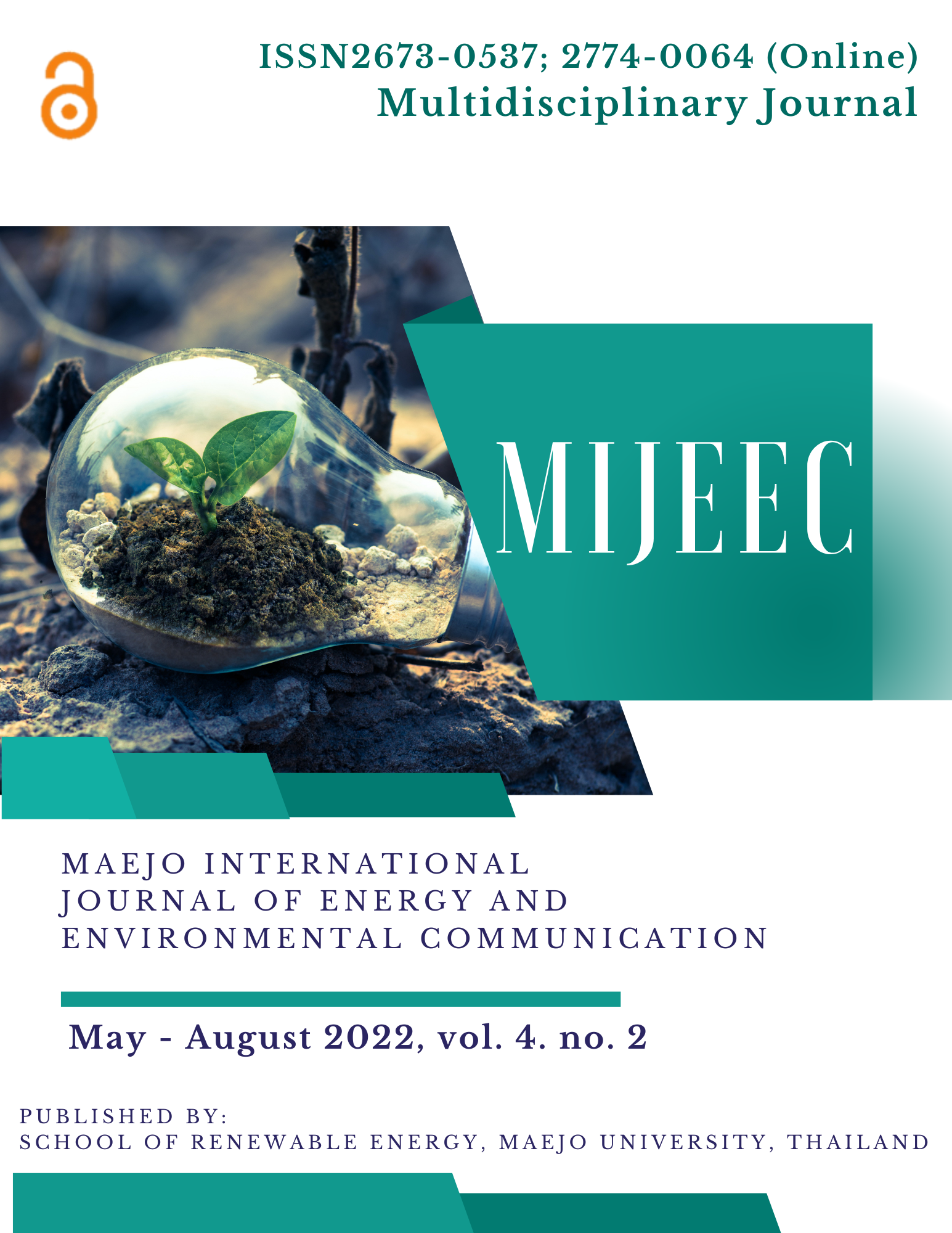Influence of nanoparticles inclusion on the production of bioethanol from corn stalks and leaves
Main Article Content
Abstract
Bioethanol is a viable alternative to petroleum-derived fossil fuels. It is renewable, low-cost, and the preferred fuel for most developing countries worldwide. Although it is possible to make bioethanol from corn stalks and leaves wastes, second-generation biofuels made from agricultural waste feedstocks represent a significant step forward. In the present research, nickel oxide (NiO) nanoparticles (NPs) were used as a biocatalyst to achieve maximum ethanol output. The pretreatment of 2% NaOH with NiO NPs, 15-min autoclave condition, showed the highest total and reducing sugar yield was 162.69 g/L and 43.75 g/L. After hydrolysis, the suitable total and reducing sugar yield of 185.43 g/L and 125.42 g/L was chosen for further fermentation with the expansion of Saccharomyces cerevisiae cells. Separate hydrolysis and fermentation (SHF) using corn stalk and leaf waste was significantly assisted by incorporating a nanocatalyst; ethanol concentration was increased to 15.8 g/L at 24 hours incubation period. The study revealed critical information regarding ways NiO NPs could be employed to improve the efficiency of the ethanol production bioprocess.
Article Details

This work is licensed under a Creative Commons Attribution 4.0 International License.
Copyright © 2019 MIJEEC - Maejo International Journal of Energy and Environmental Communication, All rights reserved. This is an open-access article distributed under the terms of the Creative Commons Attribution-NonCommercial- Attribution 4.0 International (CC BY 4.0) License






